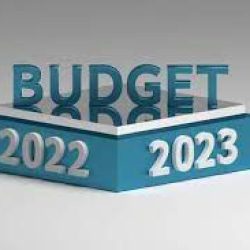Budget Summary
Personal Taxation and Wages
- With effect from 1st April 2023, the minimum wage for workers over the age of 23 will increase from £9.50 to £10.42 per hour, for workers aged 21 to 22 it will rise from £9.18 to £10.18, for workers aged 18 to 20 it will rise from £6.83 to £7.49 and for workers under 17, and apprentices, it will rise from £4.81 to £5.28
- The threshold for higher earners paying the Income Tax rate of 45% will be reduced from £150,000 to £125,140
- The Income Tax personal allowance threshold and higher rate thresholds will be frozen until April 2028
- All allowances and bands for Income Tax, National Insurance and Inheritance Tax will be frozen until April 2028
- State Pension, benefits and tax credits will increase in-line with inflation by 10.1%
- The Annual Capital Gains Tax Allowance will be reduced from £12,300 to £6,000 from April 2023 and to £3,000 from April 2024
Business Tax
- The Dividend Allowance will be reduced from £2,000 to £1,000 from April 2023 and then to £500 from April 2024
- New “temporary” 45% tax on companies that generate electricity, to apply from January 2023
- Windfall tax on profits of oil and gas firms will be increased from 25% to 35% and extended until March 2028
Research and Development
- The RDEC rate will increase from 13% to 20% for all expenditure on or after 1st April 2023. The SME additional deduction will reduce from 130% to 86% and the SME credit will decrease from 14.5% to 10%
Households
- The household energy price cap has been extended for one year beyond April 2023, with average bills now being capped at £3,000 a year
- Households receiving means-tested benefits will be given £900 support payments in 2023, with £300 for pensioner households and £150 for individuals on disability benefits
- The lifetime cap on social care costs in England due in October 2023 will be delayed by two years
- Electric cars will no longer be exempt from vehicle excise duty from April 2025
- The threshold at which homebuyers start paying stamp duty will be reversed in 2025, meaning stamp duty won’t be payable on the first £125,000 of a main residential purchase, with first-time buyers not paying stamp duty on the first £300,000 of a main residential purchase
Please contact us if you would like to discuss any of the above points.






